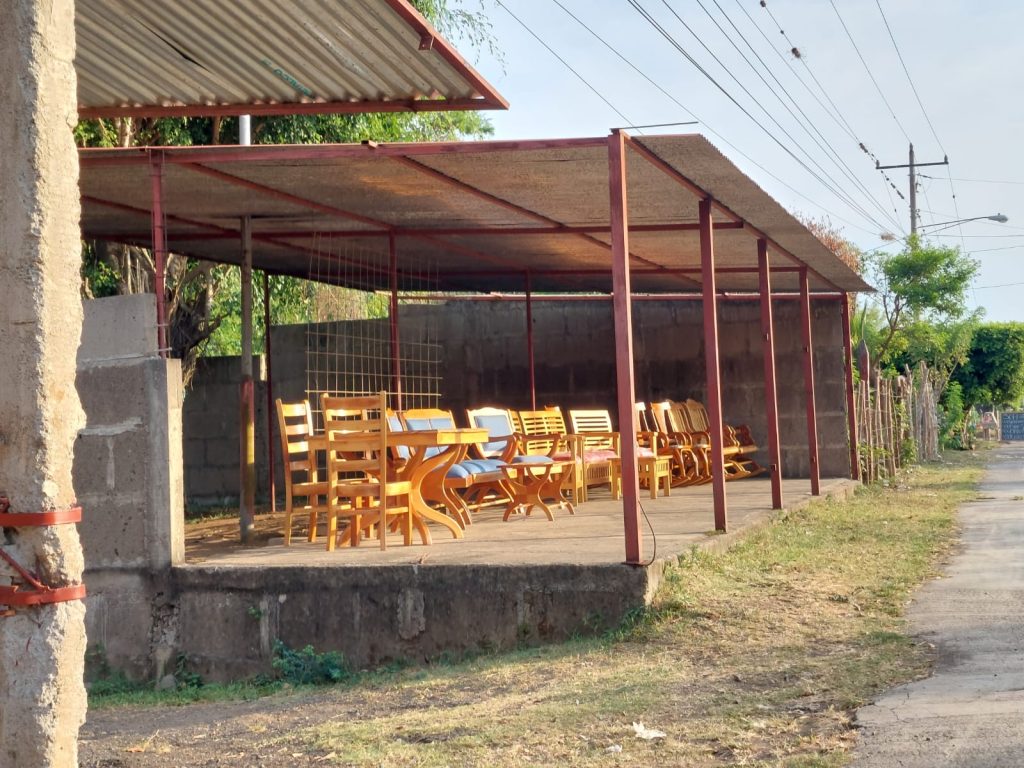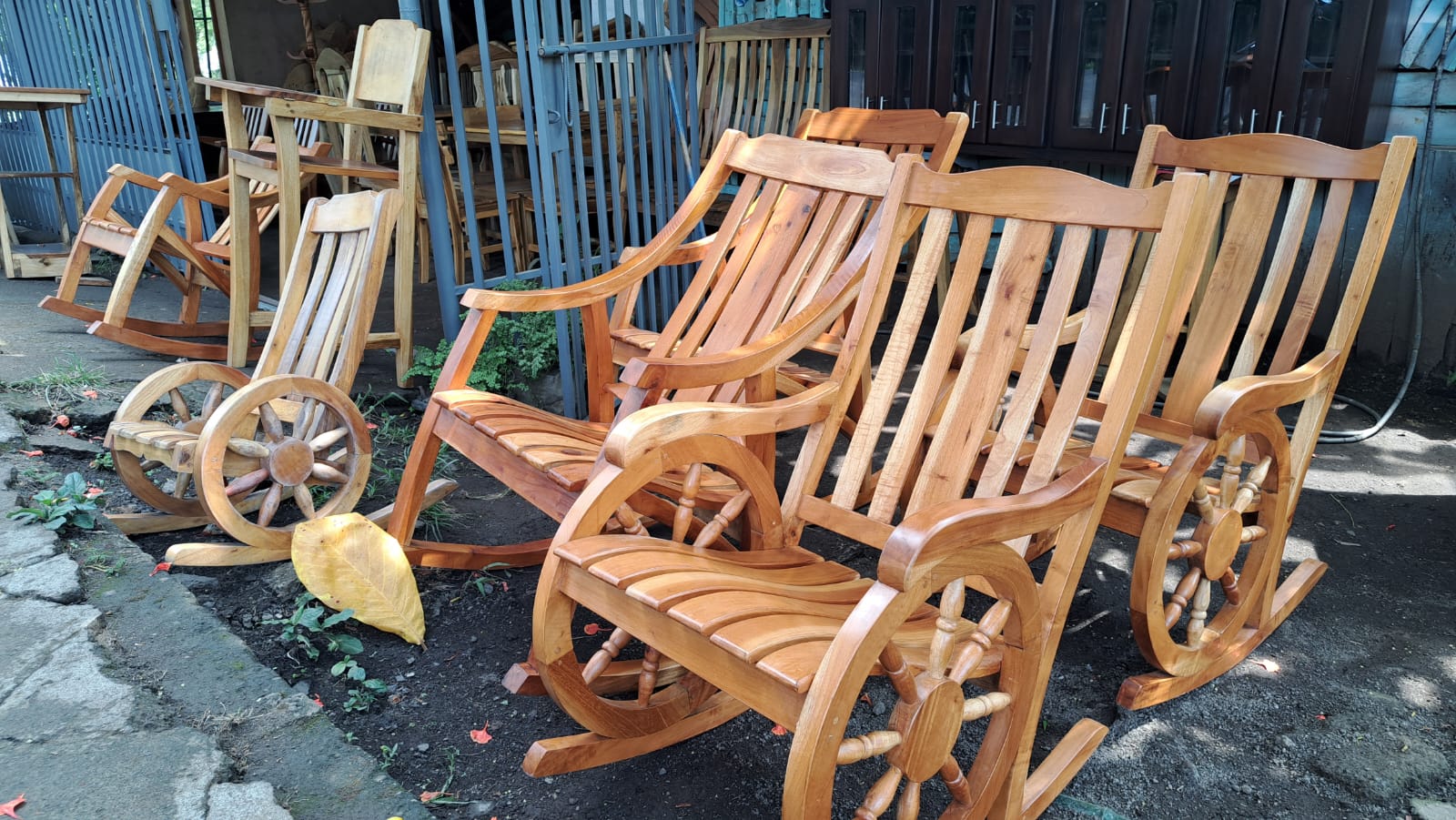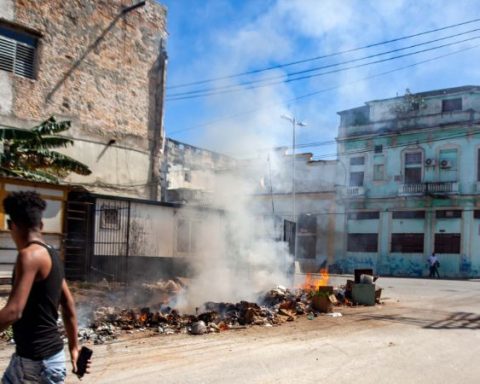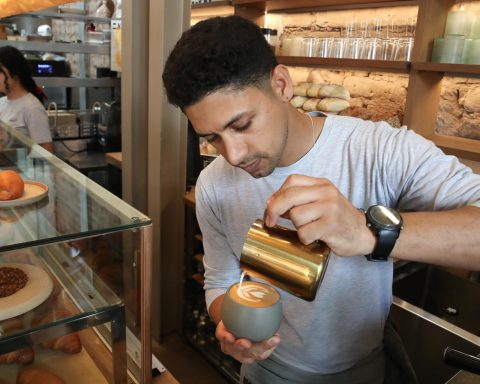The owners of workshops and furniture merchants in Masaya continue to resist the increase in municipal taxes that this year have experienced an increase of up to 100% in some items, while the sales of their products continue to decline.
Most of these businesses that are located in the section of the highway between the municipalities of Catarina and Masatepe, are still supported by the client portfolio that they have had for some years, but which has not been the same for at least the last five years.
The calls «white villages» de Masaya, are characterized by the commercialization of handicrafts and furniture made from wood, one of the most representative trades of this department that stands out for the diligence and innovation that has transformed the life and economy of its enterprising people.
For many years, dozens of families in this city have dedicated themselves to the sale of furniture made of wood, a good part of them manufacturing it, despite the increase in the price of production materials and furniture supplies. This is the case of Calero, a well-known creator of goods who celebrates 15 years of dedicating himself to this trade.
Calero remembers that for many years he was an employee in different workshops, however, around 2012 he decided to start creating furniture made from precious wood such as cedar. From that date, he managed to build his business where items such as chairs, wardrobes, armchairs, dressers, dining rooms, kitchen and office furniture are currently made and sold.
Sales remain low
Sideboards, one of the pieces that wood craftsmen manufacture diversifying their offer as a strategy to increase their sales.
Since the start of the Covid-19 pandemic in Nicaragua, in March 2020, furniture sales began to experience sharp declines. The drop in sales that made many default on their debts, added to tax payments that never stopped and recent increases, has caused the closure of several workshops.
Businesses like Calero’s liquidated their inventories and closed, at a time when the pathogen not only claimed the lives of millions of people in the world and more than 30,000 Nicaraguans, but also destroyed the weak economy of small businesses.
In the opinion of Calero and other furniture merchants, the lease payments and taxes for the use of public space, which never ceased to be collected, ended up liquidating them. As if that were not enough, since 2002, those municipal taxes have risen, now the furniture dealers in Masaya have gone from paying 60 córdobas to 120.
In addition, they must assume the payment of the registration of the business. Owners must pay charges for «right of line» and «property and real estate». The annual expenses translate into more than 5 thousand córdobas. «Debts in times of pandemic have been half paid because everything fell apart, but we continue to fight to see how things go. Sales have been maintained, but this tax burden makes things difficult»says Calero, who fights like other artisans not to give up.
Furniture supplies rise

Panoramic view of one of the places where the furniture makers display their products, located in the section of the highway between the municipalities of Catarina and Masatepe.
Some entrepreneurs have managed to resurface despite the harsh reality faced by all business owners in Nicaragua. The rise in production prices affects. In the case of furniture manufacturers, furniture supplies have also experienced an increase in their costs.
According to Calero, the precious wood they use to create their furniture has also adjusted to the new prices, which has caused business owners to increase the cost of the products as well. «The zener, for example, before was worth 180 (córdobas) now it is worth 294, almost 300; the dye went up to almost 300 córdobas, a gallon was worth 700 now it is worth 1,200 (córdobas). Everything that is input went up, that’s why we raised the cost»he reiterated.
For Calero, the sale of furniture is the only support on which his family and two of his collaborators currently survive. The renowned furniture maker reiterates that the demand for this product has decreased, while the supply continues. «Many of our buyers are other entrepreneurs who are dedicated to street sales and credit, because we all want to survive»said the craftsman.
By: United Voices.
















